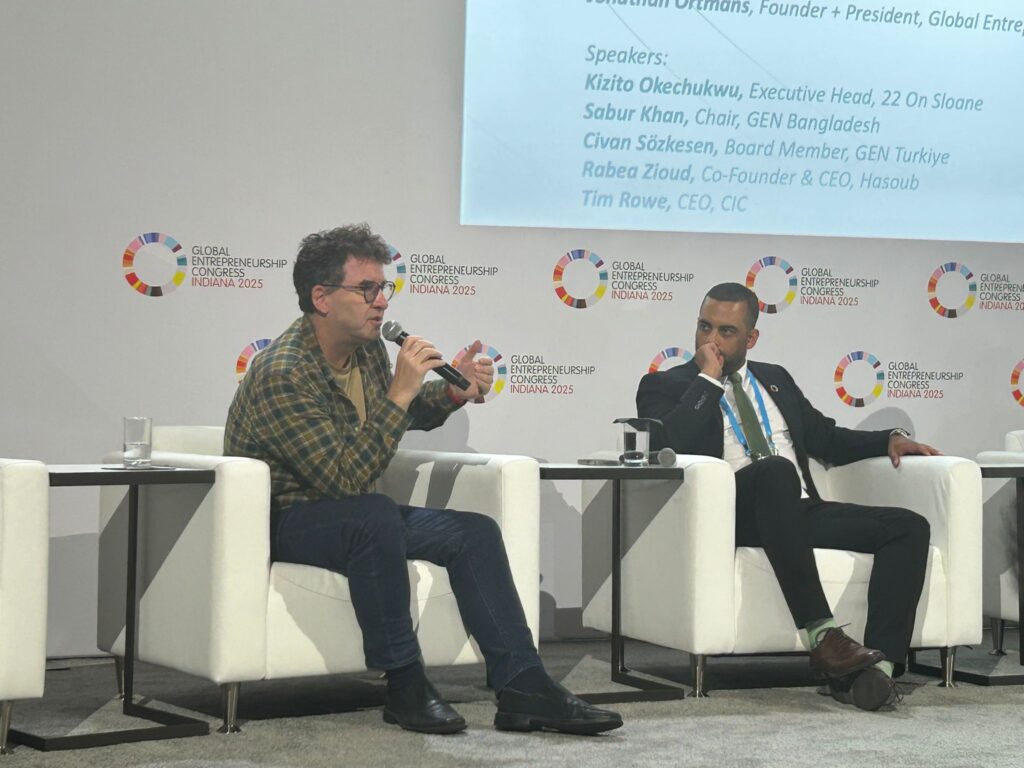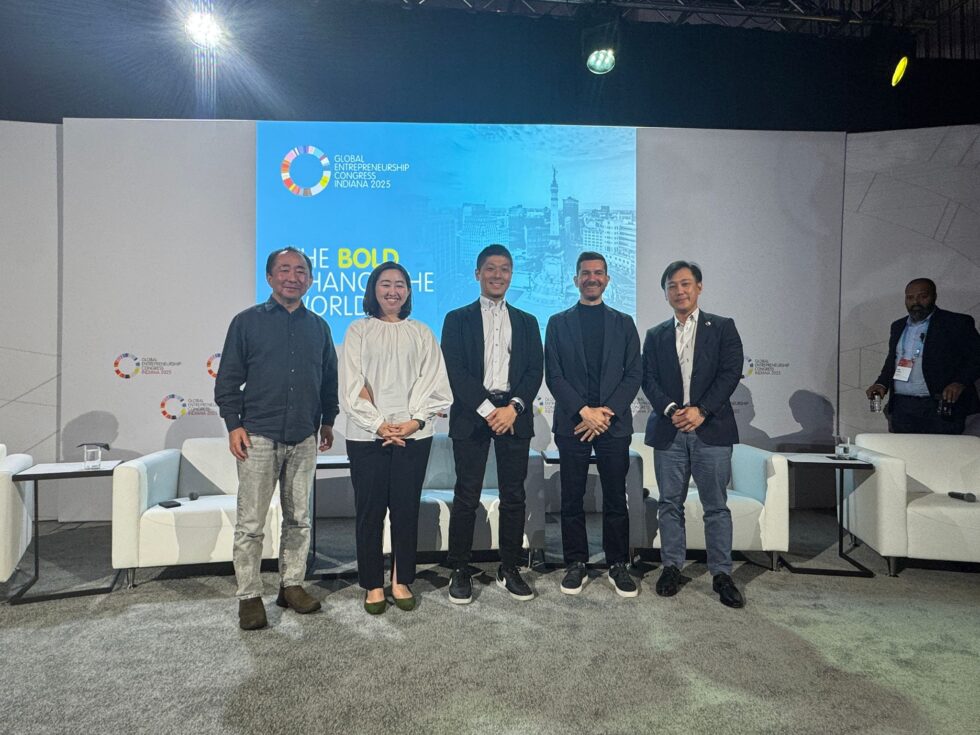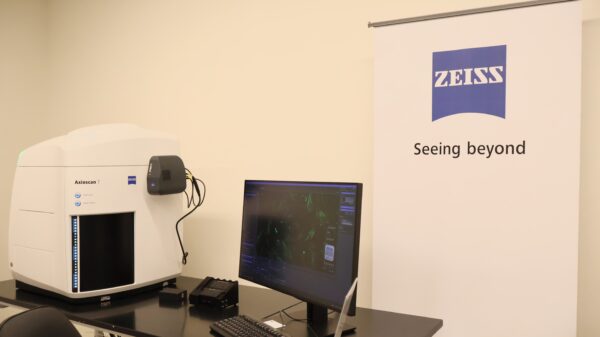At this year’s Global Entrepreneurship Congress (GEC) in Indiana, CIC leaders joined global changemakers to explore how cities and ecosystems can drive innovation and foster entrepreneurship across borders. Hosted by the Global Entrepreneurship Network, GEC is the only event that brings together founders, policymakers, investors, and ecosystem leaders from more than 200 countries to collaborate on advancing entrepreneurship worldwide. From scaling startups internationally to building hubs that spark collaboration, CIC’s team shared real-world insights drawn from our experience supporting innovators around the world.
Here’s a recap of the four sessions CIC participated in—and a few key themes and ideas that came out of them:
- How to Become a Globally Recognized Innovation City
- GEN Campus Summit: Building Next Generation Startup Hubs
- Crossing Borders, Building Bridges: Models for Global Ecosystem Collaboration
- Insights from Japan’s Evolving Startup Ecosystem
How to Become a Globally Recognized Innovation City
In this workshop, CIC Founder and CEO Tim Rowe drew on his 25+ years of experience building innovation hubs worldwide to outline what it takes for cities to become recognized leaders in innovation. His advice? “…become the place that people aspire to go to to pursue a certain kind of innovation.”
Tim emphasized the importance of specialization. For a city or region to stand out globally, it must choose a focus—whether it’s biotech, climate tech, or mobility—and intentionally build a supportive ecosystem around it. “The key here,” he explained, “is concentrating innovators, lots and lots of innovators in one place.” That starts with establishing physical hubs—like BATWorks, a new climate innovation center in Brooklyn—that attract talent, startups, and investors.
But as Tim pointed out, “These things are not just about buildings. They’re about what happens in the buildings… It’s what you do in it, how people connect, who’s there.” The most successful innovation cities create vibrant, inclusive spaces that foster collaboration and offer meaningful advantages—such as access to customers, specialized equipment, or a dynamic, connected community.
Tim was joined by Victor Mulas, Chief Innovation Officer at CIC, and Alejandra Winter, Director of CIC Connect, who led breakout sessions helping attendees apply these ideas to their own regions. They encouraged participants to think beyond their current economic strengths and imagine bold new futures rooted in emerging sectors and global opportunity.
GEN Campus Summit: Building Next Generation Startup Hubs
This panel brought together ecosystem builders from around the world to explore what makes a startup campus truly thrive. Tim Rowe joined the conversation to stress that while digital tools matter, nothing replaces physical proximity. When entrepreneurs, investors, and mentors share the same space, collaboration becomes easier, trust builds faster, and momentum grows stronger.
Panelists agreed that public-private-university partnerships are foundational. Government involvement—particularly through funding and policy support—is critical to building and sustaining successful hubs.
The conversation also highlighted the importance of location—not just geographically, but in terms of its ability to attract the right mix of people. A hub doesn’t need to be on a university campus, but it must be accessible and embedded in an engaged local community. And while startup ecosystems grow locally, global connectivity is essential. Hubs must act as bridges to international markets, networks, and resources.

Crossing Borders, Building Bridges: Models for Global Ecosystem Collaboration
Alejandra Winter, Director at CIC, joined global leaders to discuss the challenges and opportunities involved in helping startups expand internationally. CIC runs international programs to support startup expansion, and Alejandra shared insights from her work building and enhancing innovation ecosystems worldwide. Panelists shared lessons on navigating new markets, supporting scaleups, and building trust across borders.
A major theme was preparation. Startups must conduct deep market research, understand local regulatory environments, and tailor their pricing and messaging before entering a new region. But even the most well-prepared founders need help—and that’s where ecosystem builders come in.
“Going abroad is not only about business,” said Alejandra, who helps build and enhance innovation ecosystems worldwide. “It’s about community.” Founders need support systems that go beyond capital. Facilitated introductions, peer-to-peer networks, and customized mentorship can make all the difference. The panel also emphasized the essential role governments play in this process, not only through funding but by reducing barriers, providing education, and even acting as early customers for innovative companies.
The session closed with a strong call for collaboration. Ecosystem builders should work together rather than compete, and they must provide startups with deep, ongoing support—beyond the inspiration of delegation trips and pitch competitions.

Insights from Japan’s Evolving Startup Ecosystem
Japan’s startup ecosystem is undergoing a remarkable transformation. Victor Mulas, Chief Innovation Officer, CIC and Masaru Nagura, Director of CIC Institute and VP of Startup Ecosystem Association, joined fellow experts to share how the country has doubled annual startup investment in the past decade—now surpassing $5 billion—and is home to more than 9,000 early-stage startups.
The growth isn’t limited to the capital. Regional ecosystems are emerging across the country, with cities like Aichi focusing on manufacturing, Fukuoka on internationalization, and Osaka and Kyoto on biotech. These specialized hubs are leveraging local strengths while becoming increasingly connected to global networks.
Japan’s progress has been deliberate, with national and local governments aligned in advancing coordinated innovation strategies. CIC has been an active partner in this evolution, supporting startup hubs in Tokyo and beyond.
Victor and Masaru also pointed to deep tech as a major opportunity, particularly for international startups. Japan’s commitment to precision, strong research and development infrastructure, and government support make it an appealing destination for cutting-edge innovation. Connection and collaboration—within Japan and with the world—are at the heart of its continued growth.
Leading with Purpose, Building with People
The CIC team was grateful for the opportunity to share insights and experiences from years of building innovation ecosystems around the globe at GEC Indiana 2025. Whether helping cities define their innovation identity, designing physical spaces that spark collaboration, or guiding startups through global expansion, our team remains focused on one thing: creating the conditions where innovation thrives.
Across all sessions, one message rang clear: innovation happens when the right people come together in the right places with the right support. Whether you’re a founder, policymaker, or ecosystem builder, the future belongs to those who lead with purpose and invest in community.
Want to learn more about how CIC supports global innovation? Explore our International Connect Programs and flexible workspace solutions.




